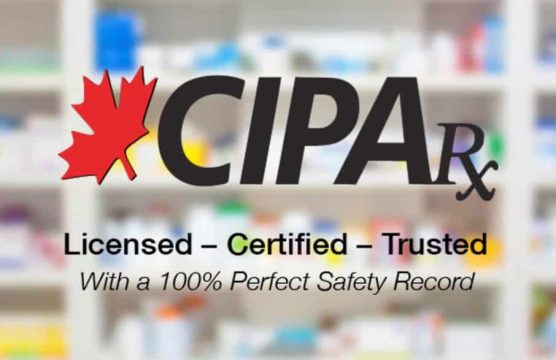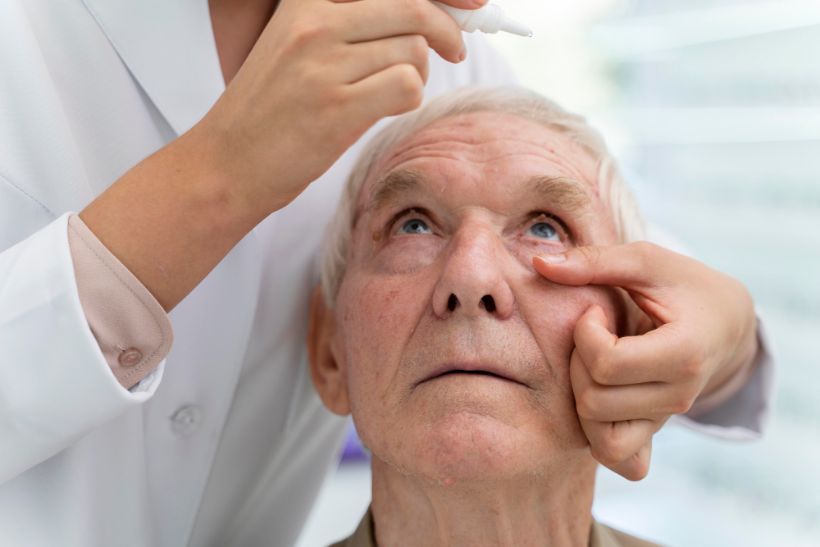If you or a loved one has been prescribed Eliquis (apixaban), chances are you’re feeling overwhelmed and maybe even a little anxious. What is this medication really for? Is it safe? How does it work? What should you watch out for? You’re not alone in asking these questions. Eliquis is a widely prescribed blood thinner used to prevent strokes and treat dangerous blood clots. But understanding how and why it’s used—and whether it’s right for you—can make a real difference in your treatment journey.
In this easy-to-follow guide, you’ll learn:
- What conditions Eliquis is approved to treat
- How it compares to other blood thinners
- Important safety information, side effects, and cost-saving tips
- What to do if you’re pregnant, miss a dose, or experience a bleeding emergency
Whether you’re just starting Eliquis or have been on it for a while, this page will give you the clarity and confidence you deserve. Let’s get started.
Eliquis (Apixaban)
See highlights of prescribing information before buying Eliquis from Canada.
Introduction to Eliquis
Eliquis is the brand name for apixaban, a prescription blood thinner. Apixaban is an anticoagulant medication used to treat and prevent blood clots and to prevent stroke in people with nonvalvular atrial fibrillation. The FDA first approved Eliquis in 2012.
Eliquis belongs to a class of drugs called Factor Xa inhibitors. These are newer blood thinners that work differently than older medications like warfarin. Unlike warfarin, Eliquis doesn’t require regular blood tests to monitor your levels.
Bristol Myers Squibb manufactures Eliquis. In 2022, this medication generated $11.79 billion in revenue, reflecting its widespread use and clinical importance.
How Eliquis Works
Eliquis works by blocking Factor Xa, a key protein in your body’s blood clotting process. When Factor Xa is blocked, your blood takes longer to clot. This helps prevent dangerous clots from forming in your blood vessels.
The medication starts working within hours of taking your first dose. Eliquis has a half-life of about 12 hours. This means half the medication leaves your body in 12 hours. Your liver and kidneys work together to clear Eliquis from your system.
Because Eliquis works quickly and leaves your body relatively fast, you need to take it twice daily. Missing doses can quickly reduce its protective effects.
What Is Eliquis Used For?
Eliquis is approved for multiple indications in the U.S. based on efficacy and safety data, including results from seven Phase 3 clinical trials. The FDA has approved Eliquis for four main uses:
Stroke Prevention in Nonvalvular Atrial Fibrillation
Atrial fibrillation (AFib) is an irregular heartbeat that affects millions of Americans. By 2030, an estimated 12.1 million Americans will have atrial fibrillation. AFib increases stroke risk by 5 times compared to people without this condition.
Eliquis is a prescription medicine used to reduce the risk of stroke and blood clots in people who have atrial fibrillation (AFib), a type of irregular heartbeat, not caused by a heart valve problem.
The Aristotle trial proved Eliquis’s effectiveness. This large study showed Eliquis reduced stroke and systemic embolism compared to warfarin. Even better, Eliquis caused 31% less major bleeding than warfarin.
For AFib stroke prevention, most people take 5 mg twice daily. However, 5 mg apixaban was associated with an increased bleeding risk than 2.5 mg dose in people with severe kidney disease. Your doctor may prescribe 2.5 mg twice daily if you have kidney problems, are over 80 years old, or weigh less than 132 pounds.
Treatment of Deep Vein Thrombosis (DVT) and Pulmonary Embolism (PE)
Deep vein thrombosis happens when blood clots form in deep veins, usually in your legs. Pulmonary embolism occurs when these clots break loose and travel to your lungs. Eliquis is a prescription medicine used to treat blood clots in the veins.
VTE (venous thromboembolism) affects up to 900,000 U.S. people yearly. It causes 60,000 to 100,000 deaths annually. This shows how important proper treatment is.
For treating DVT and PE, you typically start with 10 mg twice daily for the first week. Then you continue with 5 mg twice daily for at least three months. Your doctor will decide how long you need treatment.
Prevention of Recurrent DVT/PE
After you’ve had a blood clot, you’re at higher risk for another one. Indicated to reduce the risk of recurrent DVT and PE following initial 6 months treatment for DVT and/or PE.
For preventing future clots, the dose is usually 2.5 mg twice daily. If you are taking Eliquis because you are at a high risk of blood clots, a lower dose of 2.5 mg twice daily may be recommended for at least six months after a clotting event. This lower dose reduces bleeding risk while still protecting against new clots.
Prophylaxis After Hip/Knee Replacement
Joint replacement surgery increases your risk of blood clots. Today’s FDA approval of Eliquis for DVT prophylaxis in patients who have undergone hip or knee replacement is a significant milestone.
After hip replacement, you typically take 2.5 mg twice daily for 35 days. After knee replacement, the usual duration is 12 days. Your doctor may also advise a 2.5 mg Eliquis dose twice a day after surgery.
Eliquis Dosage & Administration
Eliquis comes in two strengths: 2.5 mg and 5 mg tablets. You can take Eliquis with or without food. Take your doses about 12 hours apart for best results.
If you miss a dose, take it as soon as you remember on the same day. Never take 2 doses of Eliquis together. If it’s almost time for your next dose, skip the missed dose.
Some people need Eliquis short-term, like after surgery. Others need it long-term for conditions like AFib. Never stop taking Eliquis without talking to your doctor first. Stopping suddenly can increase your risk of stroke or blood clots.
Side Effects & Safety Considerations
The most common side effect of Eliquis (apixaban) is unwanted bleeding. This can range from minor bleeding like nosebleeds to serious internal bleeding.
Common side effects include:
- Easy bruising
- Nosebleeds
- Bleeding gums
- Heavy menstrual periods
- Minor cuts that bleed longer than usual
Serious bleeding signs require immediate medical attention:
- Blood in urine or stool
- Coughing up blood
- Severe headaches
- Unusual tiredness or weakness
- Dizziness or fainting
Eliquis has a black box warning about bleeding risks. This medication can increase your risk of severe bleeding, leading to death. However, for most people, the benefits outweigh the risks when used properly.
People with kidney or liver problems may need dose adjustments. For people with impaired kidney function, the dose might be reduced to 2.5 mg twice daily.
Drug Interactions & Contraindications
Eliquis can interact with other medications, increasing bleeding risk or changing how well it works. Important interactions include:
Blood thinners
Never take Eliquis with other anticoagulants like warfarin or heparin unless specifically directed by your doctor.
NSAIDs
NSAIDs including aspirin and ibuprofen can increase the risk of bleeding. Don’t take these drugs unless directed by your doctor.
Certain antibiotics and antifungals
Some medications can increase Eliquis levels in your blood.
Seizure medications
Some anti-seizure drugs can make Eliquis less effective. People with prosthetic heart valves should not use Eliquis to prevent clots. Eliquis is also not recommended if you have abnormal bleeding or are allergic to apixaban. Before any surgery or dental work, tell your healthcare provider you’re taking Eliquis. You may need to stop the medication temporarily.
Food, Alcohol & Supplement Guidance
Unlike warfarin, Eliquis has fewer food restrictions. You don’t need to avoid vitamin K foods like leafy greens. However, some considerations remain:
Grapefruit
Large amounts of grapefruit or grapefruit juice may increase Eliquis levels. Moderate consumption is usually fine, but check with your doctor.
St. John’s Wort
This herbal supplement can make Eliquis less effective. Avoid it while taking this medication.
Alcohol
Moderate alcohol consumption (one drink per day for women, two for men) is generally acceptable. Heavy drinking increases bleeding risk and should be avoided.
Other supplements
Always tell your doctor about vitamins, minerals, and herbal supplements you take. Some can interact with Eliquis.
Consistency is key. Don’t make major changes to your diet without discussing them with your healthcare provider.
Is Eliquis Safe During Pregnancy or Breastfeeding?
If you’re pregnant, planning to become pregnant, or currently breastfeeding, it’s important to talk to your doctor before using Eliquis (apixaban). This medication may pose a risk to your baby.
During pregnancy: Eliquis is not usually recommended because it may increase the risk of bleeding for both you and your unborn baby. Your healthcare provider may consider safer alternatives, especially during the later stages of pregnancy or around delivery.
Breastfeeding: Studies suggest that Eliquis can pass into breast milk, though it’s unclear how much or how harmful it may be to a nursing baby. To be safe, your doctor might suggest switching to another blood thinner or consider formula feeding during treatment.
📌 Always consult your doctor if you’re pregnant or breastfeeding while taking Eliquis. Do not stop or adjust your medication without professional advice.
Can You Crush or Split Eliquis Tablets?
Eliquis tablets should not be split, crushed, or chewed, unless your doctor gives you specific instructions. The medication is designed to be released into your body at a certain rate. Altering the tablet may change how the drug works and could increase your risk of bleeding or reduce its effectiveness.
If you have trouble swallowing tablets, your doctor may:
- Prescribe a different formulation or brand
- Offer guidance on how to take Eliquis safely
- Recommend a liquid blood thinner if appropriate
How to Store and Safely Dispose of Eliquis
To keep your medication effective and safe:
How to Store:
- Keep Eliquis tablets at room temperature (68°F to 77°F or 20°C to 25°C).
- Store them in a dry place, away from moisture and sunlight.
- Keep in the original bottle or blister pack until ready to use.
How Not to Store:
- Avoid storing in the bathroom or near a sink.
- Do not freeze or refrigerate.
How to Dispose:
- Do not flush Eliquis down the toilet.
- Take unused tablets to a drug take-back program or ask your pharmacist for safe disposal methods.
- If no program is available, mix the medication with something unappealing (like used coffee grounds or cat litter), seal it in a plastic bag, and throw it in the trash.
What to Do If You Miss a Dose of Eliquis
If you forget to take a dose of Eliquis:
- Take it as soon as you remember on the same day.
- Do not double up on your next dose to make up for the missed one.
- Return to your regular schedule the next day.
Consistency matters. Missing doses can increase your risk of stroke or blood clots. Setting daily reminders can help you stay on track.
What Is the Reversal Agent for Eliquis?
In rare cases, you might experience serious bleeding while on Eliquis. That’s why it’s helpful to know that there’s a reversal agent called Andexxa (andexanet alfa).
What is Andexxa?
It’s a medicine given in hospitals to reverse the blood-thinning effects of Eliquis quickly, especially during emergencies like:
- Uncontrolled internal bleeding
- Emergency surgery
📌 Always tell emergency responders or ER staff that you’re taking Eliquis. Wearing a medical alert bracelet can be life-saving.
Eliquis vs. Warfarin vs. Xarelto: Which Is Right for You?
Here’s how Eliquis compares to other commonly prescribed blood thinners:
| Feature | Eliquis | Warfarin (Coumadin) | Xarelto (Rivaroxaban) |
|---|---|---|---|
| Routine blood tests | ❌ Not needed | ✅ Frequent INR testing | ❌ Not needed |
| Diet restrictions | ❌ None | ✅ Avoid leafy greens | ❌ None |
| Dosing | ✅ Twice daily | ✅ Once daily | ✅ Once daily |
| Reversal agent | ✅ Andexxa available | ✅ Vitamin K | ✅ Andexxa available |
| Onset of action | ✅ Fast (hours) | ❌ Slower (days) | ✅ Fast |
| Generic available? | ✅ Yes (Apixaban) | ✅ Yes | ✅ Yes |
Why patients choose Eliquis: No regular blood tests, fewer food interactions, and a strong safety profile—especially for seniors.
Clinical Trial Results That Support Eliquis Use
Eliquis has been studied extensively in clinical trials:
ARISTOTLE Trial
Compared Eliquis to warfarin in patients with atrial fibrillation (AFib). Results showed that Eliquis reduced stroke risk by 21% and major bleeding by 31% compared to warfarin.
AMPLIFY Trial
Found that Eliquis was just as effective as standard treatment for deep vein thrombosis (DVT) and pulmonary embolism (PE), with significantly less bleeding. These findings helped Eliquis become one of the most commonly prescribed blood thinners in the U.S. and Canada.
Cost & Savings Strategies
Eliquis can be expensive, especially for people on fixed incomes. Here are strategies to help reduce costs:
Manufacturer Programs
Bristol Myers Squibb offers patient assistance programs. $10 per month for up to 24 months from activation, after which patients can renew based on continued eligibility. Visit the official Eliquis website to check eligibility.
Insurance Options
If you’re uninsured, consider marketplace plans during open enrollment. Medicare Part D covers Eliquis, though you may face coverage gaps.
Generic Alternative
Currently, no generic version of Eliquis is available in the U.S. Patents don’t expire until 2026-2028.
Canadian Pharmacies
Many Americans safely purchase Eliquis from licensed Canadian pharmacies like Doctorsolve.com. Thousands of Americans have been using Canadian pharmacies over the last few years to purchase Eliquis at significant savings. These pharmacies offer the same medication at significantly lower prices.
When considering Canadian pharmacies, ensure they’re properly licensed and require valid prescriptions. Doctorsolve.com is a reputable option that many Americans trust for their medication needs. Learn how to Safely Buy Eliquis from Canadian Pharmacies.
Pharmacy Shopping
Prices can vary significantly between pharmacies. Call around to compare costs, or use pharmacy discount apps.
Frequently Asked Questions (FAQ)
Can I stop taking Eliquis if I feel better?
Never stop Eliquis without consulting your doctor. Stopping suddenly increases your risk of stroke or blood clots.
What if I miss several doses?
Contact your doctor immediately. Missing multiple doses can reduce protection against clots and strokes.
Is there an antidote for Eliquis?
Yes, Andexanet alfa (Andexxa) can reverse Eliquis’s effects in emergencies. However, it’s only available in hospitals.
Can I take Eliquis if I’m pregnant?
Eliquis isn’t recommended during pregnancy. Discuss safer alternatives with your doctor if you’re pregnant or planning pregnancy.
How long does Eliquis stay in my system?
Eliquis has a half-life of about 12 hours. It’s mostly cleared from your system within 24-48 hours after your last dose.
Can I drink coffee while taking Eliquis?
Yes, coffee doesn’t interact with Eliquis. You can maintain your normal caffeine intake.
Conclusion & Next Steps
Eliquis is an effective medication for preventing strokes in AFib patients and treating blood clots. While it carries bleeding risks, these are generally outweighed by its benefits when used appropriately. The cost of Eliquis can be challenging, but options exist to help make it more affordable. Manufacturer programs, insurance optimization, and licensed Canadian pharmacies offer significant savings opportunities. Many Americans have found relief from high prescription costs when they buy Eliquis from Canada through trusted sources like DoctorSolve.com. See eliquis 5 mg price.
Important next steps:
- Discuss any concerns with your healthcare provider
- Explore cost-saving options that work for your situation
- Never stop or change your dose without medical supervision
- Report any unusual bleeding or side effects immediately
Remember, managing your health shouldn’t bankrupt you. With the right approach and resources, you can access the medications you need at prices you can afford. For ongoing support and medication access, consider reaching out to patient advocacy groups or speaking with a pharmacist about your options. When exploring affordable prescription options, DoctorSolve.com provides a reliable destination for accessing quality medications at lower costs. Your health and financial wellbeing both matter.
References
- Ncbi.nlm.nih.gov. (2024). Apixaban – statpearls
- Pfizer.com. (2012). Update: with multimedia: u.s. fda approves eliquis (apixaban) to reduce the risk of stroke and systemic embolism in patients with nonvalvular atrial fibrillation
- CDC.gov. (2024). About atrial fibrillation | heart disease
- Ajconline.org. (2013). Estimates of current and future incidence and prevalence of atrial fibrillation in the u.s. adult population
- Pfizer.com. (2011). Eliquis (apixaban) was superior to warfarin for the reduction of stroke or systemic embolism
- Nejm.org. (2011). Apixaban versus warfarin in patients with atrial fibrillation
- Jacc.org. (2014). Major bleeding in patients with atrial fibrillation receiving apixaban or warfarin: the aristotle trial
- Drugs.com. (2024). Eliquis (apixaban) fda approval history
- Eliquis.bmscustomerconnect.com. (2024). Atrial fibrillation (afib) | Rx eliquis (apixaban) | safety info
- CDC.gov. (2025). Data and statistics on venous thromboembolism
- Xtalks.com. (2023). Top 20 drugs in 2023 by 2022 sales statistics
- Oregon.gov. ( 2024). Health care cost growth trends in oregon, 2021-2022
- FDA.gov. (2016). Prescribing information







